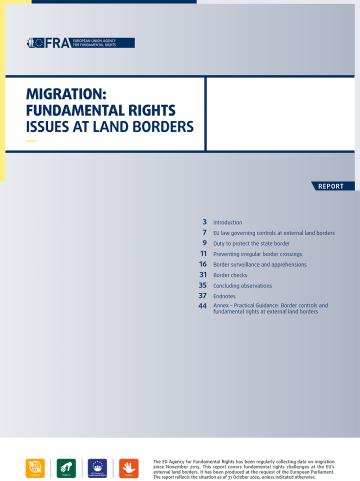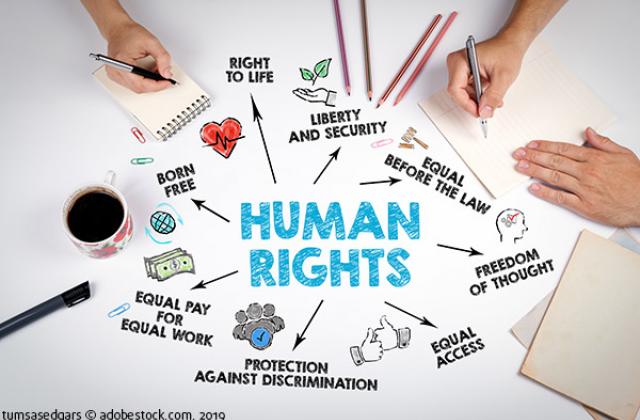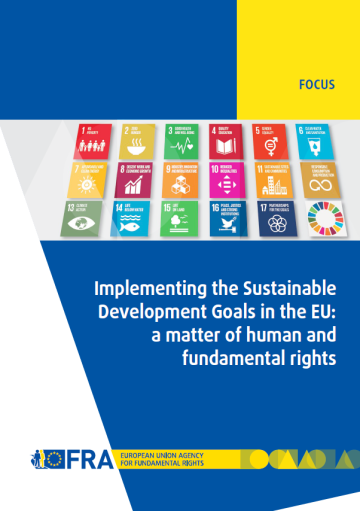Fundamental Rights Report 2019
A renewed push to move forward on the Equal Treatment Directive, proposed in 2008, failed to produce the consensus necessary for its adoption.
Meanwhile, 10 years after adoption of the Framework Decision on Racism and Xenophobia, FRA surveys underscored that people with minority backgrounds and migrants continue to face prejudice throughout the EU.
By contrast, progress on the Convention on the Rights of Persons with Disabilities, which entered into force a decade ago, offered reason for optimism: the convention reached ratification by all EU Member States in 2018.
In addition, provisional agreement at EU level on the proposed European Accessibility Act marked an important milestone in its implementation.
A year shy of its first decade as the EU’s binding bill of rights, the Charter of Fundamental Rights made appearances in case law and legislative impact assessments, but remained a long way from being systematically promoted and used. EU-level policy initiatives to promote Roma inclusion, which have not been in place for quite as long, already risk producing disappointing reviews down the road – including in evaluations of the EU’s efforts to reach certain Sustainable Development Goals, such as Goal 10 on reducing inequality within countries.
While true change comes about as a result of a variety of factors, awareness of the problem is surely vital. News of large-scale abuses of personal data in 2018 sparked such awareness regarding the need for strong privacy and data protection safeguards, highlighting the relevance of recent legislative measures. Yet discussions on artificial intelligence sometimes gave short shrift to fundamental rights.
Sometimes progress is selective. >Child poverty in the EU is slowly decreasing, but children with parents born outside the EU or with foreign nationality are more likely to be left behind. This underlines the importance of ongoing efforts to integrate the large number of migrants who arrived in 2015 and 2016. Protecting progress achieved is also crucial. With challenges to judicial independence mounting, the EU took diverse steps to counter backsliding regarding the rule of law within the bloc.
The Agenda 2030 and its 17 Sustainable Development Goals, embraced by leaders around the globe, outline a blueprint for a better world. But the whole project will only succeed if SDGs are delivered with human rights embedded within them. Underscoring this point, this year’s focus chapter explores the interrelationship between human rights and the SDGs in the EU context. It takes a particularly close look at the goals related to reducing inequality and to promoting peace, justice and strong institutions. It also explains how bodies like FRA can help empower people by providing data needed to develop evidence-based policies and to evaluate progress made.







